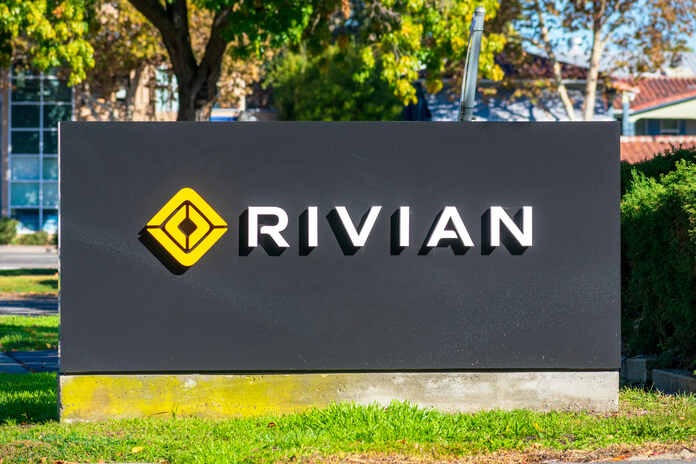Rivian Automotive Inc (NASDAQ:RIVN)
Investors in Rivian Automotive who hold the RIVN -3.67% short position is likely experiencing some frustration right now. The electric-truck manufacturer is having trouble keeping expenses under control and increasing output, which may be contributing to the stock’s decline. Wall Street is not contributing to the solution either.
RBC Capital Markets analyst Tom Narayan decided to change his recommendation for Rivian shares (NASDAQ:RIVN) from Buy to Hold late on Tuesday. He lowered his price estimate for the stock from $28 to $14, cutting it in half.
The move has caused a decline in the stock price. In recent trading, the price of a share of Rivian stock was $12.87, reflecting a decrease of 4.2%. Both the S&P 500 (SPX –0.60%) and the Nasdaq Composite (COMP –0.80%) lost 0.2%, with the S&P 500 falling 0.6% and the Nasdaq Composite falling 0.80%.
According to what Narayan said in his assessment, “Near-term, we see limited catalysts to accelerate profitability,” and he believes that margins would continue to be restrained.
Investors have been expressing worries about profitability for some time now. In 2022, Rivian produced approximately 24,000 automobiles at a cost of approximately $8.6 billion. According to projections made by Wall Street, the company will invest approximately $10 billion to produce 50,000 units in 2023.
Rivian’s expenditures are significantly higher than those of comparable electric vehicle start-ups. At the end of 2022, the corporation had approximately $12 billion in cash on hand, and it is anticipated that it will exhaust approximately $6 billion after all of its spendings is netted against sales.
In the long run, Narayan does think there will be some bright spots. Even though it won’t be available until 2026, Rivian’s next-generation vehicle platform, which goes by the name R2, has the potential to boost investor sentiment. However, it is not sufficient to prevent him from shifting to a Hold rating at this time.
Despite the downgrade, 58% of the analysts who follow the business still recommend purchasing shares. That is also the typical ratio of Buy ratings for stocks that are included in the S&P 500. Late in 2021, the Buy-rating ratio for Rivian reached its all-time high of approximately 67%.
The consensus price target among analysts for Rivian shares is approximately $26. This is a decrease from around $52 during the course of the previous six months.
The price of Rivian stock has decreased by 67% during the past year. Increasing interest rates have dampened some investors’ enthusiasm for high-growth firms that aren’t yet profitable, such as Rivian, which are expected to eventually turn a profit.
Financial Performance
The financial success of Rivian in recent years has been rather excellent, with high revenue growth and a fast-expanding client base both contributing factors. The successful sales of the company’s R1T and R1S electric vehicles contributed significantly to the year 2022’s 120% rise in revenue for the company. Nevertheless, the company’s net losses soared, which is a reflection of the large investments that were required in order to grow production and expand its product lineup.
An environment of Competitive Play
Rivian is a player in a business that is notoriously cut-throat, with established companies such as Tesla, Ford, and General Motors all competing for market share in the electric vehicle (EV) sector. Rivian may have carved out a space for itself in the premium electric vehicle industry, but the business still contends with fierce competition from Tesla’s Model S and Model X, both of which have a devoted client base and well-established brand awareness. Additionally, big manufacturers such as Ford and General Motors have entered the electric vehicle market, using their size and resources to compete with younger companies such as Rivian.
Trends in the Industry
Increasing environmental concerns and government policies that promote electric vehicles are expected to generate significant growth in the electric vehicle market over the next several years. This growth is anticipated to be significant. On the other hand, the market is notoriously unstable, as the preferences of customers are always altering and new technical developments are continually upsetting the established order. In this setting, it is essential for electric vehicle makers to keep one step ahead of the curve and consistently innovate in order to maintain their position in the market as a viable competitor.
Investors in Rivian have had a lot of information to process recently, and unfortunately, most of it hasn’t been as encouraging as they had anticipated it would be.
In conclusion, the recent downgrade of Rivian’s stock is an important development in the electric vehicle (EV) business. This event highlights the risks and potential associated with investing in high-growth firms. Rivian has demonstrated significant revenue growth and has built a devoted client base; nonetheless, the company faces tough competition from established companies as well as a quickly changing industrial landscape. As a result of this, potential investors in Rivian and the wider electric vehicle (EV) business need to carefully assess the risks associated with their investments against the potential benefits.
Featured Image: Megapixl









